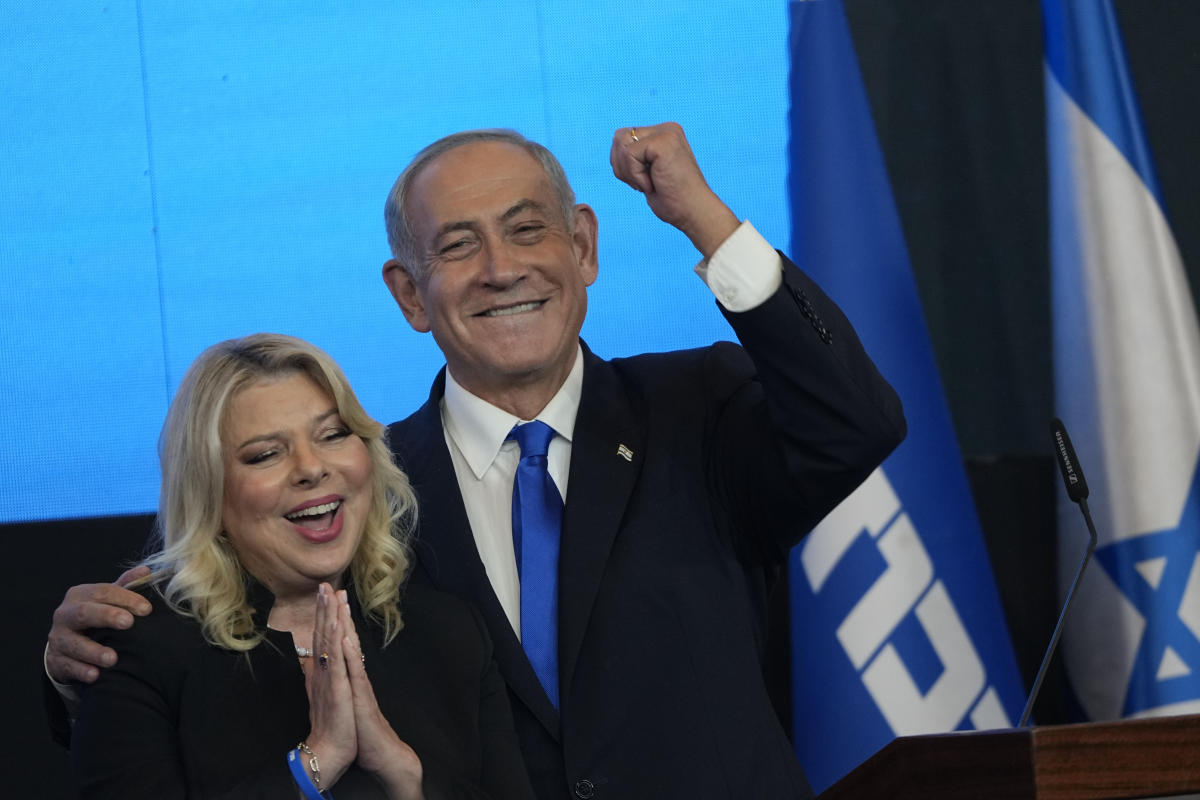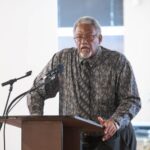
JERUSALEM (AP) — Israel’s president on Friday asked former Prime Minister Benjamin Netanyahu to form a new government, presenting the longtime leader currently standing trial on corruption charges with the chance to end years of political instability in Israel with his partners on the far right.
The decision by President Isaac Herzog was announced by his office after he consulted with leaders of all of the parties elected to Israel’s parliament in last week’s national election. He will formally present Netanyahu with the task on Sunday and give him a month to cobble together a governing coalition with a majority in the 120-seat Knesset.
Netanyahu had governed Israel for 12 successive years before being being ousted by a broad but fragile coalition in 2021. His comeback in last week’s election, the nation’s fifth vote in four years, seemed to ensure Israel would have a cohesive government with a comfortable majority for the first time since 2019.
But it will be the most right-wing and religious government in Israel’s history, after Netanyahu forged an alliance with an ultranationalist party that has grabbed headlines for its anti-Arab sentiment and threats to overhaul the judicial system.
One of Netanyahu’s coalition partners, far-right lawmaker Itamar Ben Gvir, has pledged to deport rival lawmakers, give soldiers more freedom to shoot Palestinians and end Palestinian autonomy in parts of the occupied West Bank.
On Thursday, Ben Gvir paid a glowing tribute to the late racist rabbi Meir Kahane, whose Kach party was banned in Israel and outlawed as a terrorist organization in the United States. Ben Gvir’s possible appointment to a key ministry, such as public security, could inflame tensions with Israel’s Arab minority and escalate hostilities in volatile Jerusalem.
Arab lawmaker Aida Touma-Sliman told The Associated Press that she expressed those fears to Herzog on Friday, saying the government’s potential inclusion of “people who were previously convicted of supporting terrorism … is keeping us awake at night.”
Herzog said 64 members of the Knesset had recommended Netanyahu to be prime minister, giving him a clear majority in the parliament. Those recommending Netanyahu included Ben Gvir’s Jewish Power party, the ultranationalist Religious Zionist party, the openly homophobic Noam faction, and other ultra-Orthodox parties.
Like its previous repeated elections, Israel’s Nov. 1 vote was largely centered on Netanyahu’s fitness to rule. He was indicted three years ago on charges of bribery, fraud and breach of trust in three long-running cases.
His supporters view him as a champion of Israel’s nationalist right and a master statesman who is the victim of a witch hunt by political opponents in Israel’s judiciary, law enforcement and media. Critics see him as a crook who threatens Israel’s democratic institutions by placing his legal woes above the national interest.
Netanyahu has promised not use his authority to upend the judicial process. But some of his political allies want to enact changes to Israeli law that could halt his corruption trial and make the charges disappear.




